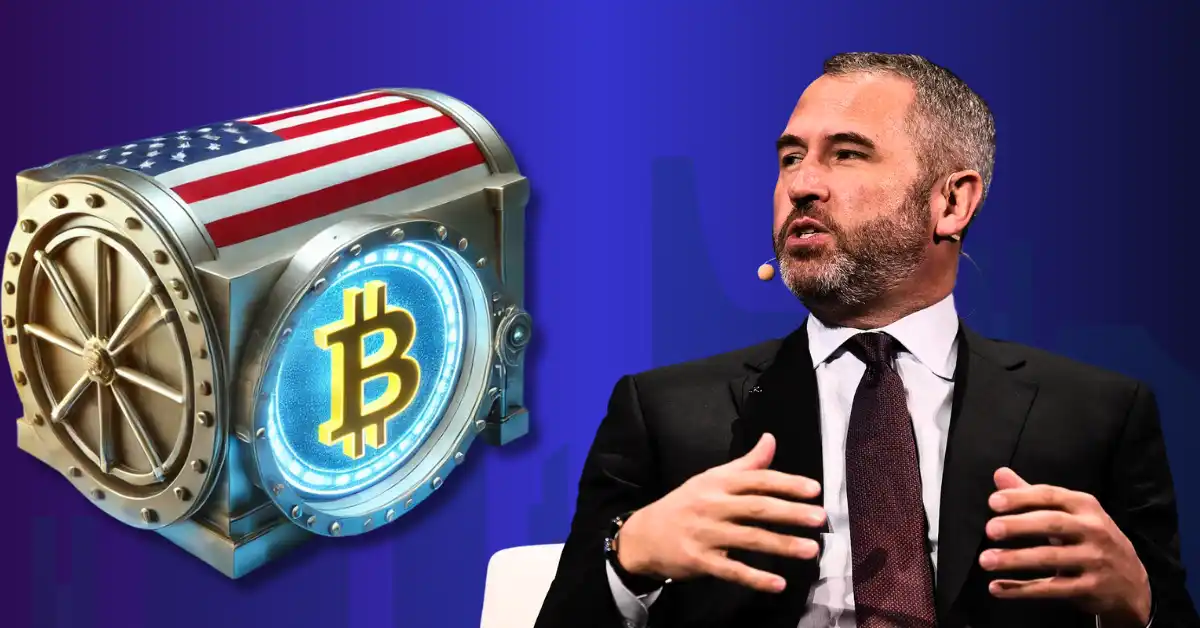
Brad Garlinghouse, the CEO of Ripple, has stirred up the conversation around the U.S. government’s plans to create a national digital asset reserve.
While some Bitcoin supporters argue that only Bitcoin should be included, Garlinghouse believes that the reserve should be more inclusive, featuring Bitcoin alongside other cryptocurrencies like Ripple’s XRP. His bold stance challenges the status quo and raises important questions about the future of digital assets.
Read on to discover why he thinks collaboration, rather than competition, is the key to crypto’s success.
Garlinghouse’s main message is that the cryptocurrency industry can thrive more if different cryptocurrencies work together instead of competing against each other. In a recent tweet, he pointed out that focusing on one cryptocurrency over others is not the way forward. He believes success in the industry will come through collaboration, not rivalry.
He stressed that the crypto market should not be a “zero-sum game,” where the success of one digital asset means the failure of another. Garlinghouse, who owns multiple cryptocurrencies, including XRP, Bitcoin, and Ethereum, wants a fairer playing field where all digital assets can succeed.
Garlinghouse believes any government-backed digital asset reserve should be diversified.
“If a government digital asset reserve is created, I believe it should be diversified. It should include more than just one token, whether it’s BTC, XRP, or any other.”
Ripple has been actively working with U.S. regulators to ensure XRP is part of the conversation about digital asset reserves. Garlinghouse believes that having a balanced reserve will help grow the cryptocurrency industry as a whole, benefiting more than just Bitcoin.
Garlinghouse’s suggestion has faced criticism from some Bitcoin supporters. Pierre Rochard, Vice President of Riot Platforms, argues that Bitcoin’s decentralized nature makes it the only suitable cryptocurrency for the reserve. He also believes Ripple is lobbying to get XRP included.
Ryan Selkis, CEO of Messari, shares this viewpoint, stating that Bitcoin’s unique features make it a better fit for the reserve than other cryptocurrencies.
As the U.S. government considers creating a national digital asset reserve, the question remains: will it include only Bitcoin, or will it be open to other cryptocurrencies, as Garlinghouse suggests? This decision could have a big impact on the future of the crypto industry.
The Congress has turned into a political showpiece on Tuesday, July 15, after 12 Republicans…
Ethereum (ETH) price rallied 3 percent in the past 24 hours to reach a daily…
Shiba Inu is recovering from recent price swings, with SHIB gathering quiet momentum at about…
Cryptocurrency markets are buzzing again, and savvy investors are increasingly turning their attention to the…
The cryptocurrency market is buzzing with excitement over Ruvi AI (RUVI), a newcomer ready for…
Over 13,200 holders have already positioned themselves in Mutuum Finance (MUTM)—a fast-rising DeFi project that’s…